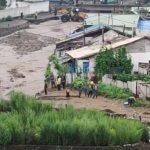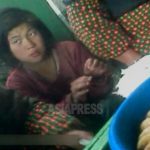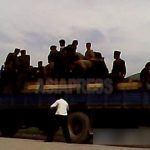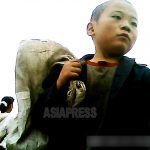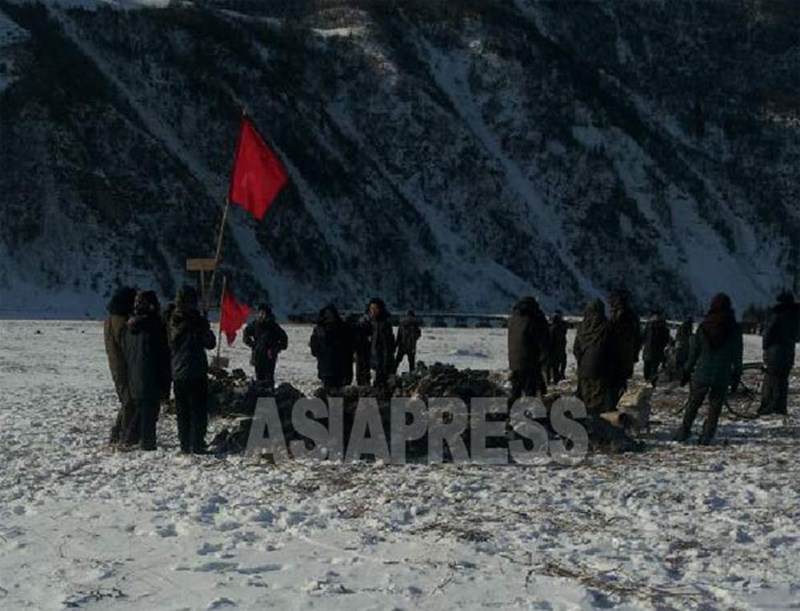
North Korea is in the midst of its annual “manure battle,” which traditionally takes place during the first part of the year. Over the period of around a month, everyone, from elementary school students to Workers’ Party cadres, are mobilized to collect human waste to make manure for farming purposes. According to an ASIAPRESS reporting partner in the northern part of the country, this year’s manure battle, which was originally scheduled to last from January 7 to January 27, is stretching into February. (KANG Ji-won)
North Korea faces a chronic shortage of fertilizer. The country’s domestic production and import of chemical fertilizer is not sufficient to meet demand, which has meant that, at the start of every year, the entire country must be mobilized to engage in a massive campaign to collect raw material to make fertilizer.
This manure collection campaign involves the participation of the entire population and all the nation’s organizations. That the country mobilizes everyone over the period of just over a month to collect manure signifies how important it is for the country. The campaign is also aimed at maintaining the regime’s ability to quickly mobilize people and organizations to achieve set goals.
◆ Each laborer charged with collecting one ton of manure
“This year’s manure collection quota is one ton per laborer, while family members (generally referring to housewives) must collect 500 kilograms. Students and elderly people must collect 300 kilograms,” a reporting partner in Yanggang Province told ASIAPRESS.
This year’s quotas appear a little smaller than last year’s. The reporting partner said that regulations surrounding punishments have tightened to ensure people are not finding ways to fool the authorities about how much they collected.
※ ASIAPRESS was unable to confirm whether the stated quota for manure collection was uniform throughout the country.
The reporting partner told ASIAPRESS that people’s committees (local governments), district offices, and enterprises would take charge of meeting set quotas in each region of the country, and that all these institutions were forewarned by the authorities that they would face punishment through the justice ministry if they tried to fool authorities about how much was collected, or used bribes to make it look like they had achieved the quotas.
Moreover, the reporting partner said that the authorities declared that they would “not forgive” any individual, regardless of gender, status and age, for paying bribes to get out of participating in the manure collection campaign, a practice that has been rampant in past years. The reporting partner pointed out, however, that there have still been people this year avoiding participation in the campaign by handing over money to pay for gas used by trucks that transport manure to farms.
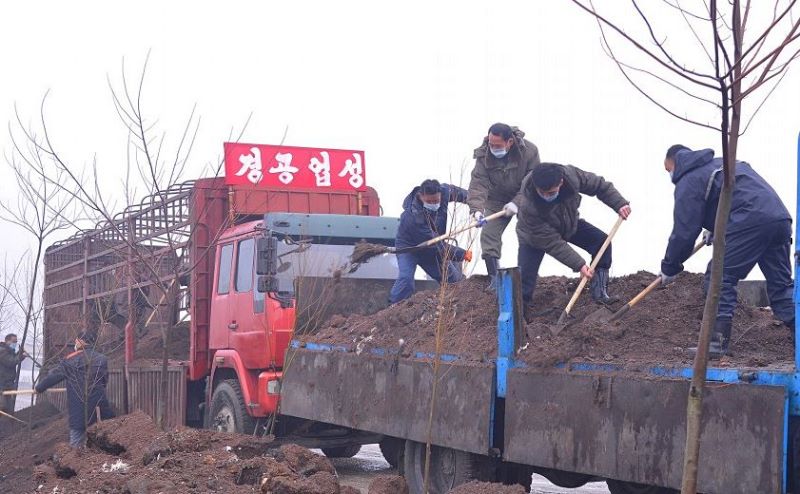
◆ People take buckets with them to the public lavatory
What, then, does this year’s manure collection campaign look like from on the ground? A reporting partner in Yanggang Province gave his account of the situation:
“Laborers carry burlap bags filled with human waste or pull small handcarts when they go to work every morning. Numbers are placed on factory yards and people place the manure they’ve collected near the number that corresponds with their workplace.
“The authorities encourage competition between organizations, companies and neighborhood watch units to produce manure, and take measures to prevent people affiliated with a particular organization or neighborhood watch unit from collecting manure from areas designated for other organizations.
“When people go to the public lavatory to take a bowel movement, they carry buckets with them. It’s a tiring, repetitive process people have to do each morning to mix poop with flay ash and dirt in the drainage areas before taking them (to collection sites).”
◆ Even high-ranking cadres carry human waste to work out of fear of punishment
The reporting partner continued his account of the realities on the ground:
“What’s interesting this year is that high-level cadres are having to act differently than normal. Just like all of us, provincial party committee and government cadres have to carry the manure made out of human waste in bags on their backs or pull handcarts when they go to work. It’s because they need to show that they are taking the lead.
“In the past, they would do that just once or twice during the campaign period, but now they are doing it every day. I don’t know where the manure the cadres make out of human waste comes from, but they are covering their assigned quotas.
“This, however, actually makes it harder for ordinary people. The cadres take the lead in collecting human waste every day, increasing the burden on everyone else to follow suit.”
Following the start of the COVID-19 pandemic three years ago, the Kim Jong-un regime has tightened control over the population. The regime has called on cadres in particular to become models for the people and work to overcome the country’s difficulties. Cadres considered to have insufficient enthusiasm for their work are stripped of their status or even have their Workers’ Party membership revoked. As a result, for the past three years, cadres have been living in a state of tension.
◆ Workers’ Party members take the lead in the campaign
“The manure produced by workplaces and specific areas are transported to farms. In the past, the manure would be placed at the entrances of farms, but this year enterprises and organizations have been given specific fields to move the manure to. If the distance to the farm designated by the authorities is far away, people have to come up with funds to buy fuel and rent out vehicles to transport the manure. This has caused problems,” the reporting partner added.
Starting on January 15, “manure production shock brigades” exclusively made up of Workers’ Party members have been created to take the lead in the manure collection campaign and become models for the rest of society.
A reporting partner in North Hamgyung Province told ASIAPRESS that, “Even Workers’ Party members are suffering from life’s difficulties, so everyone is feeling the pressure. There’s no one who believes in party policies anymore.”
※ ASIAPRESS communicates with its reporting partners through Chinese cell phones smuggled into North Korea.
- <Confidential Document>Runaways, suicides and deaths are commonplace in N. Korea’s police detention facilities, leading Kim Jong-un to sign off on measures to punish those in charge
- Facing an extreme cold snap, North Koreans are in the middle of a terrible war with the cold ISHIMARU Jiro
- Recently obtained “confidential document” signed off by Kim Jong-un reports on a gruesome incident involving a shock brigade
- <Confidential Document> With the collapse of the medical system, Kim Jong-un orders crackdown on home remedies to treat illnesses…Why?
- <Inside N. Korea> The country’s medical system continues its freefall into collapse, with hospitals sending patients back home due to lack of heating
